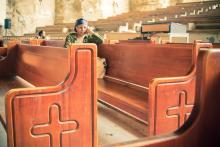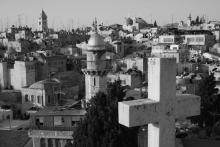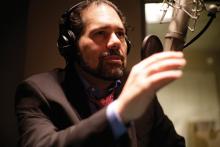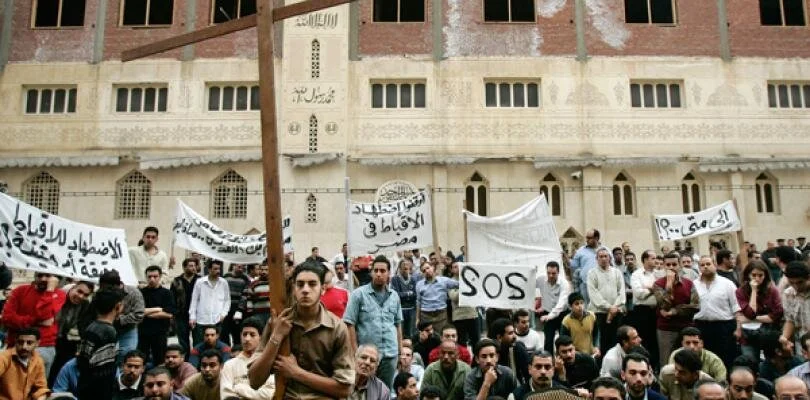Religious Minorities in the Middle East (UPDATED)
The Arab Awakening has led to a rise in Islamist governments in the Middle East – increasing concerns about the rights of religious minorities. The Middle East is largely Muslim but it’s also the birthplace of Christianity, Judaism, and many other religions. Many non-Muslims have left in recent decades, leaving relatively small populations of non-Muslims and Muslim minority sects. Now, the rise of Islamist political parties in the Mideast raises questions about the rights and protections such minorities can expect or whether they can expect them at all.
Produced by Kimberly Adams, Joseph Braude, Katherine Lanpher, the team at Tunisia Live, and A.C. Valdez/ Edited by Martha Little with additional production help from Flawn Williams. / Web Producer: Philippa Levenberg / Photos: Marcus F. Benigno, Seth Frantzman (via Flickr), AP/Ben Curtis, and spdl_n1 (via Flickr) / Host: Ray Suarez / Length: 51 minutes
Flickr:
+ Uncertainty In Egypt
Reporter Kimberly Adams takes us to Cairo, where Christians, Baha'is, and other religious minorities face an uncertain future under Egyptian president Mohamed Morsi and his Muslim Brotherhood-backed Freedom and Justice Party.

+ Syria's Alawi Population
Syrian president Bashar al-Assad and most top government officials are Alawis, a Shi’a-affiliated religious group that represents only 12% of the country’s populace. Katherine Lanpher talks with Jocelyne Cesari of Harvard University about Alawi beliefs and their role in Syrian society and politics.

+ Jewish Life In Tunisia Under Ennahda
As one of the earliest Jewish settlements in the world, Tunisia was home to over 100,000 Jews in the mid-20th century. Today that number is less than 2,000. America Abroad reports from Tunisia on life for those who remain, and their hopes and concerns under the new Islamist regime.

+ Declining Religious Diversity In The Middle East
The Middle East, once a region of great religious diversity, has in recent decades seen a mass emigration of minorities – now making it one of the most religiously monolithic regions in the world. Joseph Braude reports.

+ U.S. Efforts To Ensure Religious Freedom
What role should the U.S. play in ensuring religious freedom in the Middle East? Elliott Abrams, former Assistant Secretary of State for Human Rights and member of the U.S. Commission on International Religious Freedom, talks with Katherine Lanpher about what the U.S. is and should be doing.

+ Religious Persecution In The Mideast
Host Ray Suarez talks with Thomas Farr of Georgetown University and Nina Shea of the Hudson Institute about the persecution faced by religious minorities in the Mideast, and what the United States is and isn't doing to address it.

Supported By:
Henry Luce Foundation


